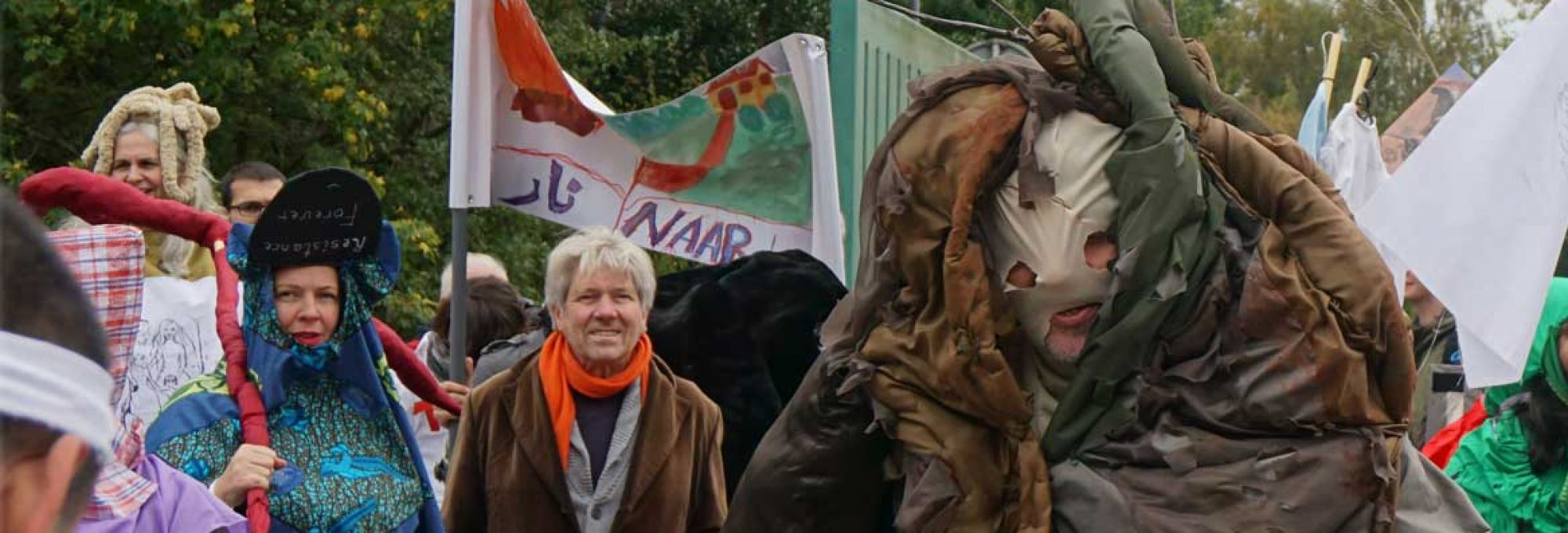The performance is structured as a confrontation between two social positions presented by two written narratives as well as a physical confrontation between the participants. The participants do battle over the main idea of the performance, the conflict between the artist and the system. Needless to say, in the current political climate of a full frontal assault by the right wing it has become essential for the artists to clearly define their social stance and principles.
In the course of the performance the two participants physically confront each other while reading text passages. Participant number one (Gluklya) represents the utopian consciousness of an artist. She reads a narrative about current events in Russia and the place of an artist in society. Participant number two (Thomas) reads corporate guidelines on conflict resolution at the work place.
The juxtaposition of the corporate manual designed to effectively manage the employees and the poetic narrative by an artist describing Russia’s ills is highly symbolic and serves as a metaphor for the fundamental conflict underlying the modern-day society.
Artists are faced with a creative/moral dilemma whether to surrender to marketplace forces or to take a stand of “eternal resistance”.
Performance takes place within a specially designed set that consists of three mattresses, a desk, and two microphones. Once faced with an impact of falling body mattresses produce a sound of metal springs set into motion.
The set of rules was created for the performance. The participants had an option to interrupt the action by pressing the red button. The button would set off the alarm accompanied by blinking lights. The first participant to press the button loses a point while his/her opponent gains one.
Our performance is a logical continuation of the previous performance study under the title FFC “Utopian Trade Union of Unemployed). As we were conducting the research for the project we interviewed a group of young men and women to identify their social positions and aspirations. To our surprise we discovered how little they knew about the idea of “equality” as a necessary component of a relationship, or else of the idea of resistance.
It is very important in our opinion to examine the juxtaposition between the idea of struggle/resistance as opposed to the temptations of comfort. This commitment to struggle and nonconformity is becoming increasingly important in the contemporary Russian society. This is particularly pertinent in the case of Russia, a country undergoing profound capitalist transformation, where the human interaction is often subsumed by the imperatives of naked power.
